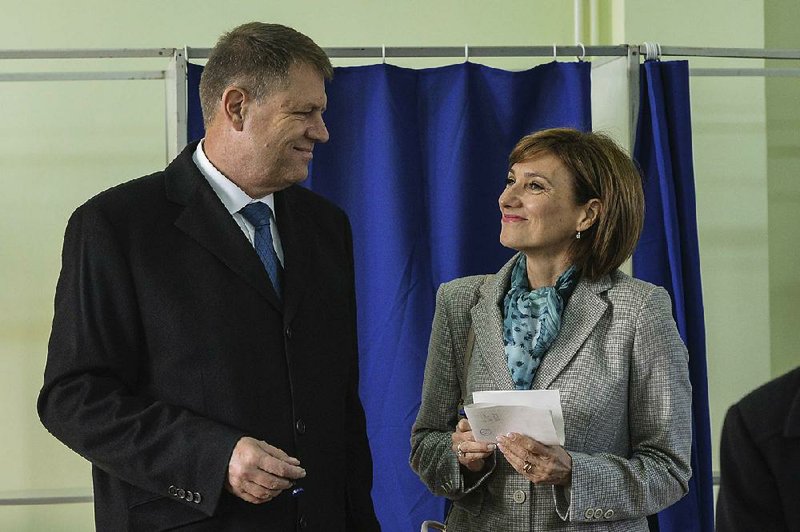Romanian candidate concedes defeat
BUCHAREST, Romania -- Romania's prime minister conceded defeat Sunday night in an extremely close presidential runoff against an ethnic German Transylvanian mayor.
Victor Ponta had been the favorite to win, but was narrowly edged out by Klaus Iohannis, the mayor of the city of Sibiu, who promised a crackdown on corruption.
Ponta said he had personally congratulated Iohannis.
"We are a democratic country," Ponta said outside the headquarters of his Social Democratic Party two hours after polls closed. "The people are always right."
With one-third of the votes counted, Iohannis was leading with 56 percent of the vote, while Ponta had 44 percent, authorities said. Official results are expected today.
Ponta called on some 15,000 protesters gathered outside his offices to listen to his message in an apparent attempt to defuse tensions over difficulties encountered by expat Romanians voting abroad.
About 300,000 Romanians who live overseas voted Sunday, many against the government. There were protests that they had been unable to vote in the Nov. 2 election that led to the runoff.
Nigerian army wrests city from militants
MAIDUGURI, Nigeria -- The Nigerian army has regained control of Chibok, the northeastern town where more than 200 schoolgirls were kidnapped by Islamic extremists more than six months ago, said army officials.
The army wrested back control of Chibok on Saturday, about 48 hours after it had been captured by the Islamic militants of Boko Haram, Nigerian army spokesman Brigadier General Olajide Olaleye said.
"Chibok is firmly in the hands of the Nigerian army." Olaleye said. "Chibok is free. Secured."
He encouraged Chibok residents to return to their homes.
The town of about 60,000 in Nigeria's northeastern Borno state had been captured by Boko Haram insurgents on Thursday night. Thousands of residents fled when the rebels entered the town shooting from pickups and motorcycles.
Two days later Chibok was recaptured by troops of the Nigerian Army's 7 Division, said Colonel Sani Usman, a deputy director of army public relations.
Villagers around Chibok said they saw a large deployment of soldiers moving toward the town on Saturday morning.
Also Sunday, a suicide bomber set off an explosion that killed 13 and injured 65 in the northeastern town of Azare, police said.
Governor-elect wants base off Okinawa
A politician who wants a U.S. Marine base moved out of Okinawa won election as governor of the southern Japanese island chain, public broadcaster NHK said.
Takeshi Onaga won about 360,000 votes compared with about 260,000 for his nearest rival and incumbent Hirokazu Nakaima, Prime Minister Shinzo Abe's favored candidate, according to the prefecture's website.
Onaga, 64, is seeking to reduce the military burden on Okinawa, which hosts about three quarters of the U.S. bases in Japan, while covering only 0.6 percent of the nation's land area. Nakaima, 75, last December agreed to allow the Futenma U.S. Marine base to be shifted to a less densely populated area of the prefecture, a move that appeared to end nearly two decades of wrangling over the issue.
"Based on this victory, I will go to the government, the U.S. government and even the United Nations to tell them the people are against it," Onaga said Sunday in a televised interview broadcast after the exit polls were published.
The U.S. agreed with Japan's central government in 1996 to close Futenma because of its location in the heart of a densely populated city, and shift facilities to a base in the quieter northeast of the island. Reopening the relocation debate may anger the U.S. just as Abe seeks to bolster ties amid a territorial dispute with China. It would also be an inauspicious start to Abe's campaign for a general election eyed for next month.
A Section on 11/17/2014
